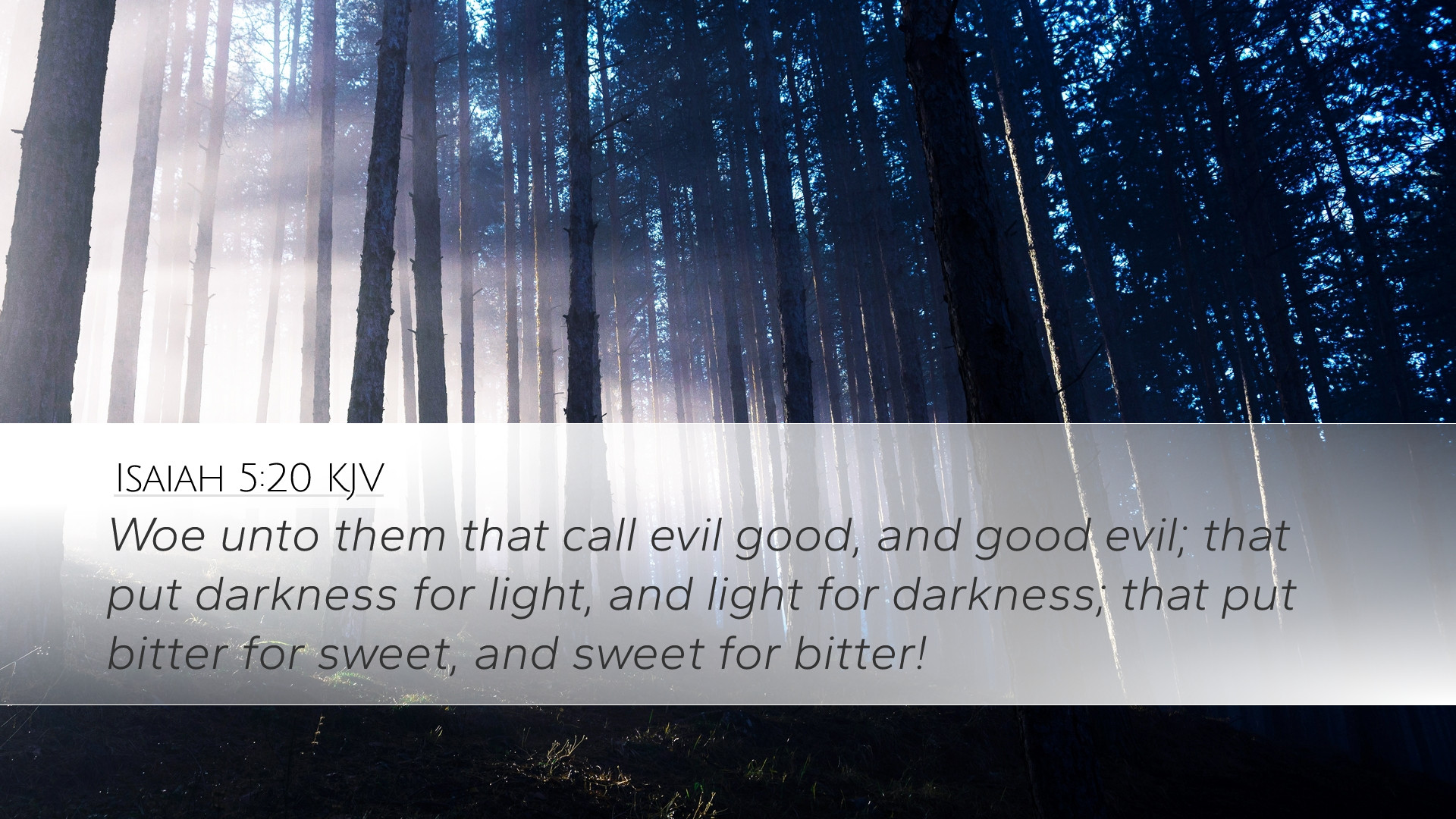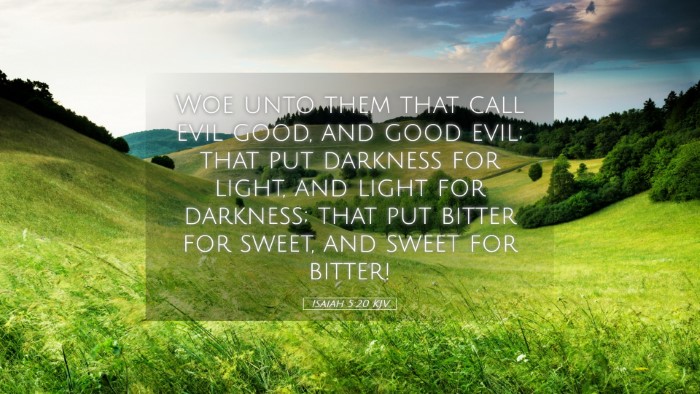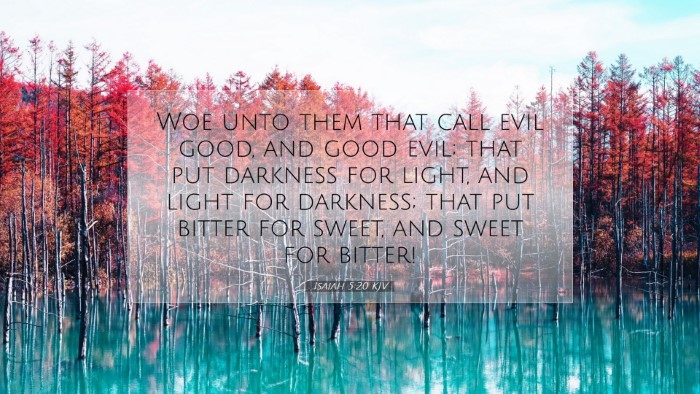Isaiah 5:20 - Commentary and Insights
Bible Verse: "Woe unto them that call evil good, and good evil; that put darkness for light, and light for darkness; that put bitter for sweet, and sweet for bitter!"
Introduction
This verse serves as a pivotal warning against moral inversion and the dangers of redefining ethical boundaries. The prophet Isaiah, under divine inspiration, delineates a stark contrast between good and evil, urging the audience—both his contemporaries and future generations—to discern the truth amidst societal deception.
Contextual Background
Isaiah prophesied during a turbulent time in the history of Israel, characterized by social injustice, spiritual decay, and a deviation from God’s commandments. The society depicted here struggles with moral ambiguity, which leads to a parallel of the spiritual landscape in our modern context.
Commentary Insights
Matthew Henry's Commentary
Translation and Interpretation: Henry provides a vivid interpretation that emphasizes the gravity of the “woe” pronounced upon those who reverse the moral order. He notes that such individuals have not only lost their way but also attempt to lead others astray by their wrongful judgments.
Albert Barnes' Notes
Philosophical Implications: Barnes stresses the philosophical implications of declaring good as evil. It reveals a heart hardened against God's truth and a society willing to sacrifice righteousness for convenience or pleasure. This moral degradation has real-world consequences, as it distorts justice and fosters chaos.
Adam Clarke's Commentary
Practical Applications: Clarke elaborates on the practical effects of such inversions in daily life and governance. He describes how societies that embrace this moral disarray often slide into greater sins and how this reversal of values emerges from a rejection of divine revelation.
Analysis of the Contrasts
Isaiah uses four sets of contrasts that underline the seriousness of this condition:
- Evil and Good: The first contrast exposes the fundamental rebellion against God's nature.
- Darkness and Light: This metaphor encapsulates spiritual blindness and the ignorance of the divine truth.
- Bitter and Sweet: Reflects the corruption of taste and moral judgments, where what should be nourishing is toxic.
- Bitter and Sweet: Illustrates a profound level of deception where that which brings harm is embraced as beneficial.
Theological Reflections
This verse invites theologians to consider the implications of moral relativism in the church. How do we hold onto absolute truths in an era that champions subjective interpretation? The call of Isaiah serves as a reminder to uphold God’s standards and to be vigilant against societal pressures that seek to undermine biblical morality.
Practical Exhortation for Pastors and Leaders
For pastors and church leaders, the exhortation in this verse is clear: there is a responsibility to preach truth uncompromisingly. The societal trend towards moral ambiguity necessitates strong biblical teaching that clarifies what is good, true, and just, urging congregations to engage with scripture actively.
Conclusion
This profound verse poses a challenge and a call to action for believers. It beckons Christians to evaluate their own lives and the culture around them, fostering discernment and commitment to God’s Word. By maintaining a clear distinction between good and evil, light and darkness, the faithful can stand as beacons of hope and truth in a world teetering on the edge of moral confusion.


